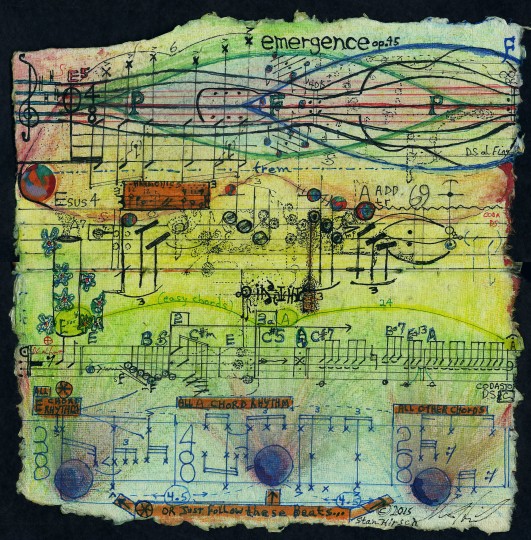That fuzzy ball of sound
Bringing that Fuzzy Ball Of Sound into Focus.
Do you really know how you want that music you are working on to sound? If you can get a clear vision of exactly what that music is which you desire to play, then the lesson plans for learning that are easily drawn up. Sure, what you practice should depend on the outcome you desire. Do you have a clear vision of that outcome?
Do you hear it clear enough to vocalize it?
Vocalizing- Your voice, the act of vocalizing things, has a very unique pathway to and from your mind. Vocalizing is a direct link to thought-and to creating reality. (Hearing the music then having it materialize as sound.) It is a way of placing musical patterns firmly in your mind and then coaching your hands. If you can vocalize the rhythmic patterns alone, or rhythmic patterns attached to arranged notes then you’ve got it! All you have to do now is teach it to your hands. (Not always quick or easy.)
All musicians who play any music (complex or simple) that sounds “solid†and strongâ€, can vocalize what it is they are playing. From the basic rhythm to the most complex arrangement of notes. This does not mean they can “sing†them in perfect pitch (although some can), but they can vocalize the phrasing (rhythm). They hear the part (inside their head) and can bring it out into the physical world by vocalizing it. Then play it on their instrument. (Assuming they have acquired the necessary technical skills. Etc…)
Listening to the music and gaining a clear vision of it takes as much practice as all the more “physical†skills.
Again, work on gaining a clear vision. This is arguably the most valuable lesson in music making. Try to get a clear vision of how the music sounds. Work on how you would like the music you are creating to sound. Step outside yourself and listen to how you sound. Bring that fuzzy ball of sound into focus!
Note: This is important whether you are composing your own music or working on another’s. If it is your own, then you have some extra steps involved. It it is another’s, even if you have the notation and recordings, this work must still be done.
Study, enjoy learning more “thingsâ€. Rehearse and gain a clearer vision. Practice and seek perfection. But try forgetting those “things†when making music.
-Stan Hirsch
That Fuzzy Ball






